
This will be a lengthy summary of this week’s Donors Choose activity, all of which was funded by HIStalk reader contributions. Donation instructions:
- Purchase a gift card in the amount you’d like to donate.
- Send the gift card by the email option to mr_histalk@histalk.com (that’s my Donors Choose account).
- I’ll be notified of your donation and you can print your own receipt from Donors Choose for tax purposes.
- I’ll pool the money, apply all matching funds I can get, and publicly report here which projects I funded, including teacher follow-up messages and photos.
Donations from Christina, Bill, Mike, Carla, and Diameter Health
These donations totaled $2,850. My Anonymous Vendor Executive matched their donations two-for-one, plus I found third-party matching (up to five-to-one) that allowed me to fully fund at least $30,000 worth of classroom projects. I choose mostly math and science teacher grant requests unless a teacher’s write-up moves me to meet a different type of classroom need.
- Physics lab supplies for Ms. S’s high school class in Hayward, CA
- A Lego station for Ms. S’s first grade class in Grants Pass, OR
- Headphones for Ms. M’s kindergarten class in Chandler, AZ
- Game buzzers and wobble cushions for Ms. H’s elementary school class in Pink Hill, NC
- STEM activity kits for Ms. A’s elementary school class in Glendale, AZ
- Programming logic games for Mr. C’s elementary school class in New York, NY
- Electronic white board technology for Ms. E’s elementary school class in West Sacramento, CA
- A programmable robot for Mr. L’s middle school class in Espanola, NM
- A document camera for Ms. R’s middle school class in Houma, LA
- A physics professional development course for Ms. S, a high school teacher in Hayward, CA
- Computer lab headphones for Ms. M’s pre-school class in Theodore, AL
- STEM kits for Ms.G’s first grade class in Los Angeles, CA
- Wiggle chairs for Ms. E’s first grade class in Richton, MS
- Osmo coding games for Ms. F’s first grade class in Ypsilanti, MI
- Dry erase boards for Ms. G’s technical high school class in Cleveland, OH
- Legos and K’Nex kits for Ms. P’s elementary school class in Stratford, CT
- STEAM lab kits for Ms. H’s elementary school class in Glenarden, MD
- Robotic programming kits for Ms. P’s kindergarten class in Moreno Valley, CA
- Headphones for Ms. S’s elementary school class in Miami, FL
- Math centers for Ms. T’s elementary school class in Frankfort, KY
- Robotic competition supplies for Mr. H’s high school class in San Francisco, CA
- Hands-on math activities for Ms. T’s pre-K class in Houston, TX
- STEM supplies and reading games for Ms. N’s elementary school class in Miami, FL
- A programmable scientific calculator for Mr. H’s high school class in Bakersfield, CA
- STEAM kits for Ms. C’s elementary school class in Las Vegas, NV
- A table for Ms. M’s middle school class in Palermo, CA
- Programmable robots for Ms. E’s first grade class in Emerson, GA
- Programmable robot for Ms. L’s pre-K class in Halifax, VA
- A projector and Chromecast for Mr. G’s middle school class in Penitas, TX
- A programmable robot for Ms. B’s middle school class in Phoenix, AZ
- Classroom supplies for Ms. G’s elementary school class in Bayonne, NJ
- A document camera for Ms. P’s elementary school class in Irvington, NJ
- A programmable robot for Ms. M’s elementary school class in Seguin, TX
- Composition supplies for Ms. C’s International Baccalaureate class in Hempstead, NY
- Dry erase boards and chart tablets for Ms. J’s elementary school class in Springfield, MA
- Headphones for Ms. K’s elementary school class in El Monte, CA
- Library carpet and seating for Ms. S’s kindergarten after-school program in Philadelphia, PA
- Math towers and indoor recess supplies for Ms. W’s all-girl fourth grade class in Bronx, NY
- A classroom library of books for Ms. O’s middle school class in Glendale, AZ
- A trip to the health museum for Ms. C’s high school class in Houston, TX
- A programmable robot center for for the elementary school library of Mr. H in Stockbridge, GA
- Wiggle chairs and math games for Ms. S’s kindergarten class in Cincinnati, OH
- Pep club supplies for Ms. M’s middle school class in Ayden, NC
- Multicultural learning materials for Ms. M’s preschool class in Fayetteville, NC
- Math games for Ms. H’s preschool class in Midland, MI
- STEM centers for Ms. S’s elementary school class in Brooklyn, NY
- Space learning materials for Ms. B’s elementary school class in St. Louis, MO
- STEM and coding resources for Ms. R’s elementary school class in Grand Prairie, TX
- An Apple TV for Mr. K’s high school class in Kansas City, MO
- An interactive learning tablet for Ms. M’s head start class in Kalamazoo, MI
- Lego kits for the library of Ms. G in Dallas, TX
- STEM kits for Ms. O’s elementary school class in El Paso, TX
- STEAM kits for Ms. W’s elementary school class in Chesapeake, VA
- Programmable robots for Ms. O’s elementary school class in Paintsville, KY
- Wi-Fi microscopes and headphones for Ms. W’s elementary school class in Cleburne, TX
- Math manipulatives for Ms. C’s preschool class in Blountstown, FL
- Programmable robot for Ms. K’s gifted elementary school class in Atlanta, GA
A Sample of Initial Teacher Responses
I want to thank you for contributing to this project. Thank you for caring for 28 girls you have never met BUT whose lives you have impacted.
This is my first experience with Donors Choose. What an amazing experience it has been! The idea that we, in public education, have partners who look for opportunities to fund learning activities for our students is life changing. Funds are hard to come by in an urban school. Our students will be building Lego projects in the library for years to come. Who knows where they’ll go from here? My heartfelt thanks.
Thank you for gathering my students in your arms and giving them a huge hug. Thank you for “dropping a stone” and creating a positive ripple in each of these kids’ lifelines.
Christmas came early in Room 305! Thank you so very much for your generous donation!! My students and I are so excited for the STEM activities to arrive! I can’t wait to see their little creative minds grow!
Thank you so much for your contributions that led to the funding of my project! Because of your contribution, I will be able to grade student work more efficiently, spend greater time planning dynamic, student-centered learning activities for my students, and introduce them to technology they will use increasingly more as they progress to more advanced math classes. Your donation will allow me to be more effective as a teacher by providing me with a valuable tool used in evaluating student work and in planning student learning. Thank you so much for this generous donation to my classroom!
I am overwhelmed by you generosity! This kind of project is something that will really motivate my students and I couldn’t have funded it without you. This is incredible news that will shape the rest of the school year. A classroom full of Kindergarten students says thank you, thank you, thank you
Words cannot express how appreciative of your generosity I truly am. My students will enjoy the ability to code and build using the new tools they will be getting thanks to your donation. Our classroom will be an energized, STEM class when our new tools get here. Thank you again for your support!
Thank you so much for supporting my students and their learning! I hope to be able to use these headphones to enhance their learning during Tech time and improve their scores in both Math and Language. They are going to be so very happy to have their own headphones now!
I’m overjoyed to be able to bring hands-on coding experiences to my youngest students. You made this possible with your generous donation. I plan to quickly implement lessons where the Code and Go Mouse kit and the board game will allow my students to fully comprehend coding while using computational thinking. Thank you for making this all possible!
Thank you so much for investing into the lives of the scholars in my classroom! Every Friday, we set up STEAM labs for scholars to rotate through where they are free to explore, create, and investigate. Thanks to your donation, we can continue to strengthen the curious minds of 20 scholars who come from environments where success is just a dream!
On behalf of the third grade students here at Cooke Elementary, we thank you for helping us achieve science greatness. We have learned to love science, but with the new microscopes it will deepen our love because we will be able to seen the unseen. The earphones will give us the opportunity to learn with disturbing others around us.
WOW is all I can say. You have made our dreams come true. I can see my students growing and learning by leaps and bounds. They love computer time and their biggest complaint was they wished they had headphones to hear better. The kids are blown away by your kindness. Thank you for the headphones and Happy Holidays.
This will make me and my class so happy!! These items will make coming back to school after break that much more exciting. You have no idea how appreciative we are. I can’t wait to show my mini engineers in action.
Thank you from the bottom of our hearts. Your kindness has warmed this cold day and made us all believe in the kindness of others. All I can say right now is WOW! You all have made our learning dreams come true. These supplies are going to motivate our students to think and dream big. They already LOVE learning. Thank you for the coding projects. Again, THANK YOU so much for supporting our class!
My students and I deeply appreciate you taking the time to make our dream come true. We are very excited about having an active Pep Club at our school. With your help, our Pep Club will be able to provide support to all of our teams at all of our events. You have helped ensure that our students will have a very Happy New Year. We wish the same to you.
Words can’t express the happiness I feel that my students get to experience this field trip. They would not otherwise been presented with an opportunity as this. Thank you very much for helping me to give another avenue for presenting my subject to my students. Thanks for your donation.
As an educator, it is very important for me to enhance my knowledge and teaching skills from time to time, to better serve my students. But the tuition sometimes withhold an educator. Your support is very appreciated. It will help me to do my job effectively. This course will enable me to learn new strategies to teach high school science by incorporating, math, and engineering in it. This will impact all my students by increasing their subject comprehension. Thank you once again!
I cannot thank you enough for your generosity! The supplies will provide my students will the tools that they need to understand the importance of physics concept-waves and relate it to real life. These supplies will help my students to do real science by experimenting ( and not just reading about it). Thank you so much for considering my project. The supplies will help me to teach science effectively.
Words can not express my gratitude toward you for fulfilling my project. Books are a very important part of a child’s education. I explained Donor’s Choose to my students and they are also very grateful and wanted me to thank you from them.
My students are going to love the STEM Kits you helped bring to our classroom. Preparing our children for the future is key and with your generosity, we are getting them on their way! We truly appreciate your support and thoughtfulness!
I couldn’t believe it when I opened my email and saw that my project was fully funded. My students are going to be so excited to be able use Legos and K’nexes to test and explore Science, and engineering concepts. Thank you again for supporting my students’ learning!
With these additional Osmo resources, my students will be able to work independently or collaborate with other students. These games will increase our coding skills, critical thinking, reading, and leadership habits. I can’t wait to watch my students get started!
Thank you so much for your donation and support of Donors Choose, public school, and my classroom. I cannot tell you how much this means to my students and classroom. Having adequate and functional workspace is so important to student learning and classroom culture. Thank you, thank you! My students are going to be thrilled. I cannot wait to tell them the good news. Thank you for your generosity.
These multicultural books and posters that will give my students exposure to the world around them. The posters are real and relevant pictures of real families from around the world and the diverse photos of people of all ages and cultures from all over the world! I could not provide the hands on materials my young students nee without donors like you and Donors Choose. I am externally grateful!
We have really been working on math skills and helping families so that they can work with their child at home too. We are so excited to be able to offer fun games and activities to families during our March into Math event!
Thank you so much for your generous donation! I cannot wait to start implementing this interactive board and I am excited for all the possibilities to further engage my students. This device can be used in math, ELA, science, and all other content areas. I know my students will be incredibly excited to use this!
My students will be able to truly see their work come alive in front of them. Their level of understanding is going to jump by leaps and bounds. Their ability to read and be successful writers is going to be so much more obtainable. I thank you for taking a part in our future leaders and being so selfless to change the trajectory of a child’s future.
My students will be very happy when they use the kits to develop their programming skills. They are going to show their coding skills to their parents and friends. It is the best Christmas gift for my students and my school. Thank you.
Thank you so much for funding my Wobble and Buzz project! My students are super excited about the wobble seats and buzzers so they can wobble and buzz themselves to success. My students will be more attentive during activities involving our buzzers by using the wobble seats to help them stay focused.
We are excited to learn all about space with the many goodies we will receive! I know students will enjoy counting astronauts, putting together the spaceship gears, and listening to the many space stories coming our way. The planets will be perfect for when we learn all about them! Thanks again.
Headphones will benefit my students tremendously since many of them have a reading deficit and need passages and questions read to them. This will be another learning tool that will be beneficial in learning centers and online interventions. Thank you again for your generosity!!
With your help we are building a robotics problem that is free for the students and their parents or guardians. These items help build a robot that the students can compete against more well-funded high schools. Thanks again for your support.
We are so appreciative and thankful that you chose to fund our project! There are so many amazing things that we will be able to do with these supplies! We will use these supplies in ALL of our learning centers! Thank you again and again!!
I am in shock, and so grateful that my students will be able to have these dry erase board to use in class! These dry erase boards will allow my students so many opportunities in class! Thank you so much, once again this means the world to both myself and to my students.
I am beyond grateful for the opportunity to bring 21st century skills into my gifted classroom! I am always on the lookout for innovate resources to enrich and engage my gifted students. Students will be so excited to dig into coding when we return from Winter Break.

















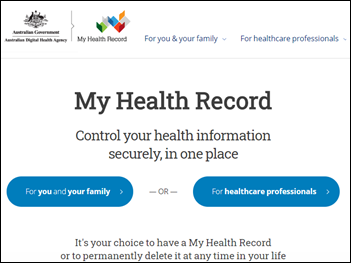


















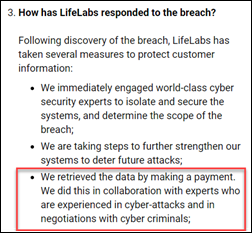









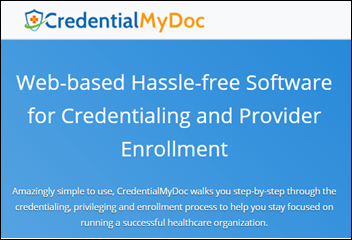




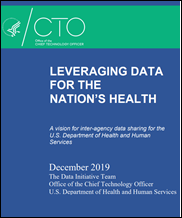










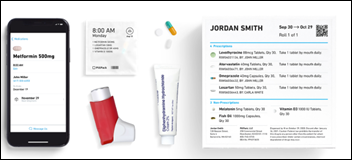



























































































 ‘
‘












































The New Yorker cartoon of Readers Write articles.